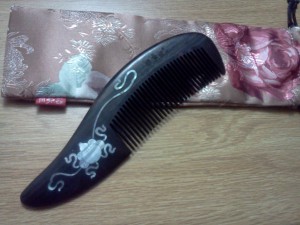Kimchi Recipe
Most women made their own kimchi (cabbage side dish) for their respective families. With the onset of contemporary times, kimchi is now mass produced and rarely homemade. This recipe was taken from my mother who had been given her mother’s (my grandmother’s) recipe and so on. She added her own addition to it (the shrimp) years after making the kimchi for our family. There is a different taste from this homemade side dish to the mass produced one, and between my mother’s kimchi and other families’ kimchi tastes. Each family has their respective recipe that they follow, which can vary for the amount of time the cabbage is soaked to the individual ingredients used. Creating kimchi for your family was also a sign of a girl learning ownership of her household and family, as it takes a while to make and families tend to make a lot to last through the winter in one sitting.
The Recipe:
배추를 사서 반으로 쪼개고 그리고 그걸 또 반 살짝 자르는거야 중도까지.
그렇게해서 물에다가 소금을넣어서 풀으는거야. 소금을 녹을때까지 배추를 당거.
그렇게해서 2시간후에 뒤집어. 그리고 총4시간후에 싯어.
싯어서 소쿠리 에다가 나.
양염은: 무 하나, 양파 반, 파 한단, 마늘 6족, 생강( ginger) 조금, 새우 조금 (1/2 cup), sweet rice죽, 미나리, 갓. 다 썰어서 고추가루랑 양염하는거야.
Sweet rice죽에다가 새우를넣고 그냥나둬.
죽에다가 예쁘게 만들어 빨갛게. 무 하고 야채를 따로 고추장을 양염해.
그 후에 배추에다가 죽 양염한걸 섞어. 섞은후에 배추의 잎 사이에다가 썰은 무 양염한걸 뿌려, 빨갛게. 다해서 냉장고에 2주동안 나두면 맛있게 익을거야. 겨울에는 4주.
The first step is the buy the cabbage. Wash it and cut it in half. Take these halves and cut it again to the midway point. Prepare a tub of water and sprinkle a lot of salt in it. After doing this, soak the cabbage in the mixture until the salt melts in the water. After 2 hours flip the cabbage and soak the other side. Take them all out after a total of four hours. Leave them to dry.
Sauce ingredients: 1 Radish, half an onion, one bushel of green onion, 1 clove of garlic, a little bit of ginger, half cup of mini shrimp, sweet rice porridge, parsley, and leaf mustard.
Place the shrimp aside. Cut the rest into small slices and marinate them with gochugaru (chili powder).
Put the shrimp in the sweet ridge porridge and stir. Mix in the gochugaru until it’s a pretty red color. After this, spread the porridge mixture across the cabbage. After this, spread the other mixture with the radish and other ingredients in chili powder in between the cabbage leaves. Do this until the cabbage is red. After finishing, put the cabbage in a glass jar or store it and place it in the refrigerator for around 2 weeks to ripen. It can take up to 4 weeks in the winter.

